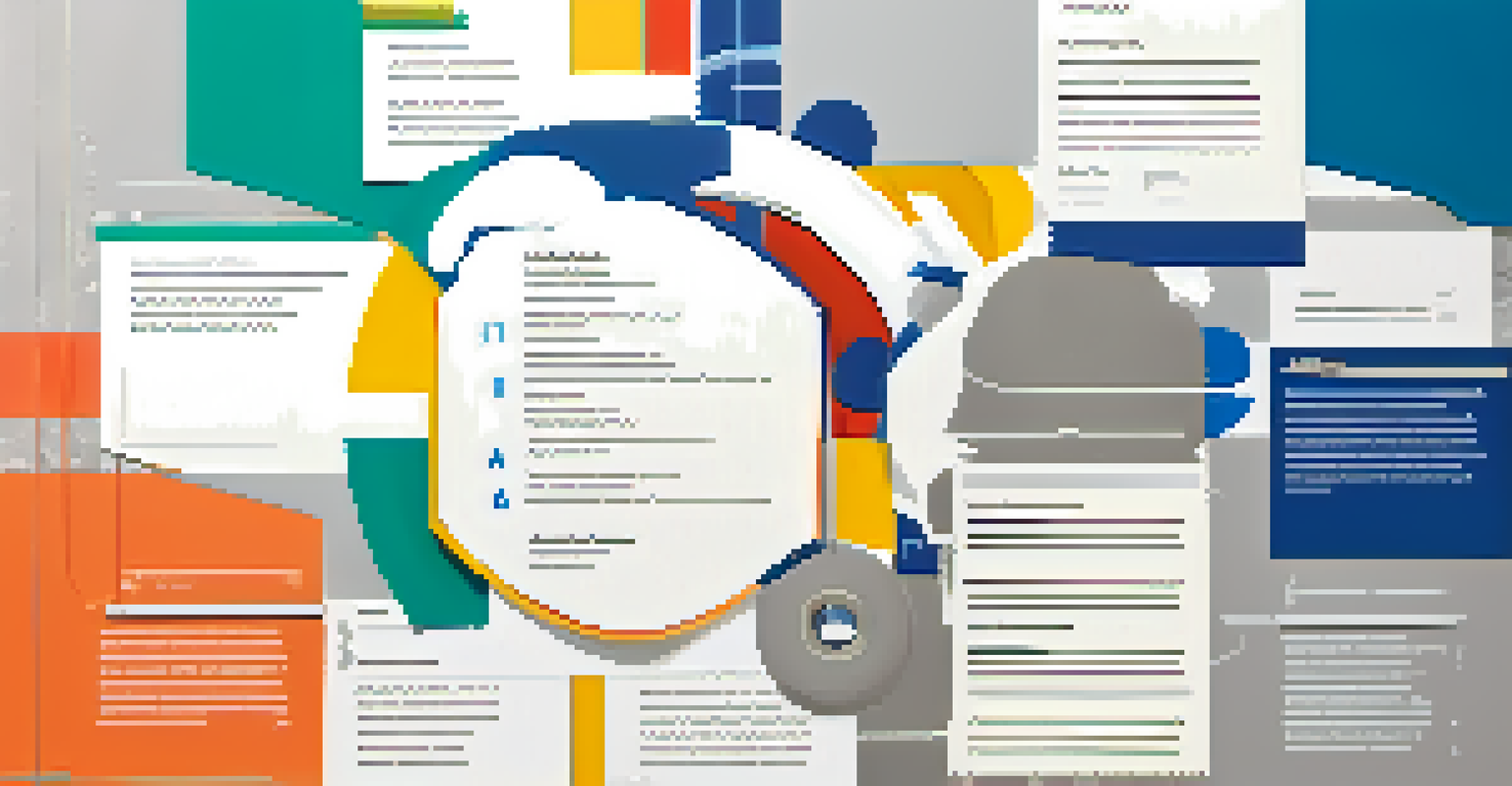Crafting a Resume for a Cross-Industry Career Shift

Understanding the Importance of a Tailored Resume
When shifting careers, a tailored resume is your best friend. It highlights your relevant skills and experiences that align with your new industry. Think of it as a customized map guiding potential employers through your journey.
Your resume is a reflection of your professional brand. It should not only highlight your skills but also tell your unique story.
Without a tailored approach, your resume can get lost in the shuffle, especially in competitive job markets. Employers often skim resumes quickly, so it’s crucial to make a strong first impression that speaks directly to their needs.
By focusing on what’s relevant, you not only increase your chances of getting noticed but also demonstrate your commitment to the new field. This sets the stage for a meaningful conversation during the interview.
Researching Your Target Industry and Role
Before you dive into writing your resume, spend some time researching your target industry. Look at job postings, industry reports, and even company websites to understand what skills and experiences are in demand.

This research will help you identify transferable skills from your previous roles that can apply to the new position. For instance, if you’re moving from marketing to sales, your communication and project management skills are invaluable.
Tailor Your Resume for Success
A customized resume highlights relevant skills and experiences, making you stand out to potential employers.
Understanding the language used in the new industry also allows you to incorporate relevant keywords into your resume. This not only helps in applicant tracking systems but also resonates with hiring managers.
Highlighting Transferable Skills Effectively
Transferable skills are the bridge between your past and future roles. These include soft skills like communication, leadership, and problem-solving, which are valuable across various industries.
A tailored resume is not just a piece of paper; it’s your first opportunity to make an impression and showcase your value.
When listing your skills, use specific examples to illustrate how you’ve successfully applied them in your previous jobs. For example, if you spearheaded a project that improved efficiency, detail the outcome and its relevance to your new role.
Employers love seeing quantifiable achievements, so don't shy away from using numbers to showcase your impact. This approach not only demonstrates your capabilities but also builds credibility.
Crafting a Compelling Summary Statement
Your resume summary is like your elevator pitch—it should grab attention quickly. In just a few sentences, summarize your professional background, key skills, and what you bring to the table in your new industry.
Tailor this summary to each application by incorporating specific keywords from the job description. This not only shows that you've done your homework but also positions you as an ideal candidate.
Research to Identify Transferable Skills
Understanding your target industry's demands helps you showcase applicable skills from previous roles.
A well-crafted summary sets a positive tone for the rest of your resume, encouraging employers to read further. It’s your chance to present yourself as a strong contender right off the bat.
Focusing on Relevant Experience and Achievements
When shifting industries, it’s essential to focus on experiences that are relevant to your new career path. Instead of listing every job you've ever had, emphasize roles that showcase skills applicable to your target field.
For instance, if you're moving from education to corporate training, highlight your teaching experience and any training programs you've developed. This approach helps bridge the gap between your past and future roles.
Don't forget to include achievements that demonstrate your impact in previous roles. Using action verbs and quantifying results can help illustrate your successes and make your resume stand out.
Formatting for Clarity and Readability
The format of your resume plays a crucial role in how it’s perceived. A clean, organized layout makes it easier for hiring managers to scan quickly and find important information.
Use headings, bullet points, and adequate spacing to create a visually appealing document. This not only enhances readability but also keeps the reader engaged with your content.
Craft a Compelling Summary Statement
A strong resume summary quickly captures attention and positions you as an ideal candidate for the role.
Remember, your resume is a marketing tool, so ensure that it reflects your personal brand. Choose fonts and colors that are professional yet authentic to you, striking a balance between creativity and formality.
Seeking Feedback and Making Adjustments
Once you’ve crafted your resume, it’s wise to seek feedback from trusted contacts. Fresh eyes can catch mistakes you might have overlooked and offer valuable suggestions for improvement.
Consider reaching out to mentors or professionals in your target industry who can provide insights into what works and what doesn’t. Their perspective can help you fine-tune your resume for maximum impact.

Be open to making adjustments based on the feedback you receive. A resume is a living document that should evolve as you gain more experience and as industry standards change.
Preparing for the Interview: Beyond the Resume
Your resume gets you in the door, but the interview is where you truly sell yourself. Prepare to discuss your resume in detail, particularly how your past experiences make you a great fit for the new role.
Practice articulating your transferable skills and concrete examples of your achievements. This preparation will help you feel more confident and articulate during the interview.
Remember, the interview is also an opportunity for you to assess the company and role. Come prepared with questions that demonstrate your interest and fit for the position, showing that you’re as invested in the opportunity as they are.